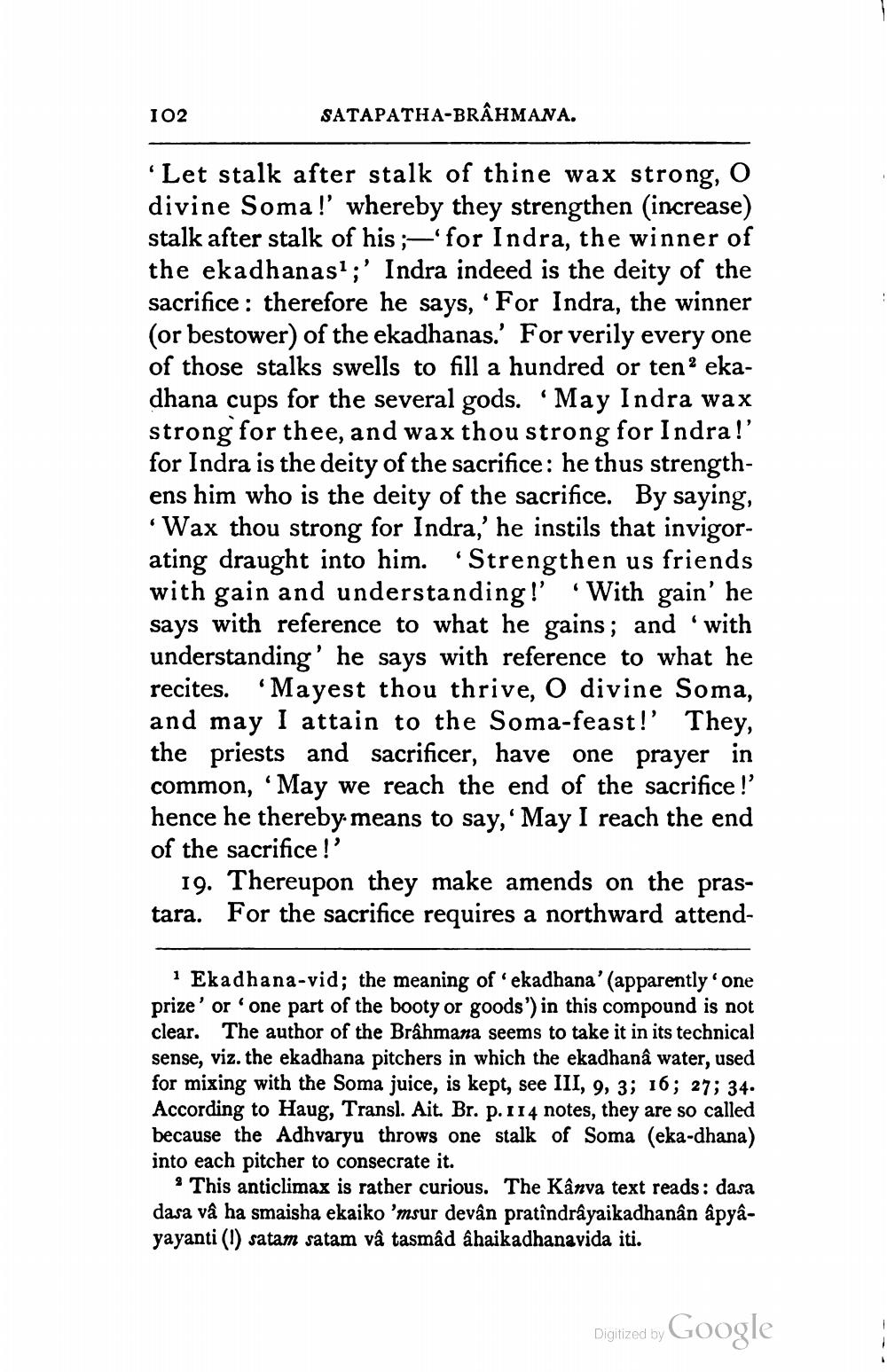________________
SATAPATHA-BRAHMANA.
'Let stalk after stalk of thine wax strong, divine Soma!' whereby they strengthen (increase) stalk after stalk of his ;-'for Indra, the winner of the ekadhanas1;' Indra indeed is the deity of the sacrifice therefore he says, 'For Indra, the winner (or bestower) of the ekadhanas.' For verily every one of those stalks swells to fill a hundred or ten2 ekadhana cups for the several gods. 'May Indra wax strong for thee, and wax thou strong for Indra!' for Indra is the deity of the sacrifice: he thus strengthens him who is the deity of the sacrifice. By saying, 'Wax thou strong for Indra,' he instils that invigorating draught into him. 'Strengthen us friends with gain and understanding!' 'With gain' he says with reference to what he gains; and 'with understanding' he says with reference to what he recites. 'Mayest thou thrive, O divine Soma, and may I attain to the Soma-feast!' They, the priests and sacrificer, have one prayer in common, 'May we reach the end of the sacrifice!' hence he thereby means to say,' May I reach the end of the sacrifice!'
102
19. Thereupon they make amends on the prastara. For the sacrifice requires a northward attend
1 Ekadhana-vid; the meaning of 'ekadhana' (apparently 'one prize' or 'one part of the booty or goods') in this compound is not clear. The author of the Brahmana seems to take it in its technical sense, viz. the ekadhana pitchers in which the ekadhanâ water, used for mixing with the Soma juice, is kept, see III, 9, 3; 16; 27; 34. According to Haug, Transl. Ait. Br. p. 114 notes, they are so called because the Adhvaryu throws one stalk of Soma (eka-dhana) into each pitcher to consecrate it.
This anticlimax is rather curious. The Kânva text reads: dasa dasa vâ ha smaisha ekaiko 'msur devân pratîndrâyaikadhanân âpyâyayanti (1) satam satam vâ tasmâd âhaikadhanavida iti.
Digitized by
Google




